So how exactly does one choose a single album to be named “the greatest” when so many vital competitors exist? It’s a question all reviewers must face when they choose to boil albums down to their cores in lists or awards, and there’s no universal answer. To me, though, the winner deserves to be an album which reminds what music really is, because from time to time it is hard to lose sight of that common perception. Music is the expression of emotion through sound – a fair enough premise – and yet most artists in the medium limit themselves to just one of the infinite emotions we possess. We see love in Fleetwood Mac, depression in Nirvana, hatred in Slayer…but in some, we see these emotions ebb and flow together as naturally as the ocean tides, as they do in the human spirit. For outstanding achievement in ever-difficult task to emulate human nature through flawlessly executed song-writing, The Stavers Awards are proud to name this album to be the #1 Album of 2008:
1. Opeth - Watershed

So…where to begin on this one? I suppose it’s notable to mention for anyone who has never come into contact with the musical enigma that is Opeth that they have been producing almost universally-acclaimed albums since the early 90’s, and have since become nearly synonymous with progressive metal. But while they have never been ones to be restricted by boundaries or to avoid new pathways, Watershed is perhaps the most pivotal moment in their history. In almost completely changing the foundation of their sound which has been but tweaked and altered since its creation with 1998’s My Arms, Your Hearse, Opeth re-emerged from a silent metamorphosis this year to become an altogether better group of song-writers and performers. Is Watershed their greatest album ever made, as the name may imply? Most critics seem to think so, but it may a few years until I am ready to confirm my own beliefs. What’s more relevant as of today is whether or not Watershed better allows the band to more aptly present their formidable blend of brilliant, non-traditional song-writing and unparalleled emotional climaxes to the world, to which the answer is undoubtedly yes.
The changes are perhaps due in part to some critical changes in Opeth’s usually steady line-up. The loss of long-time guitarist Peter Lindgren and drummer Martin Lopez since the release of their last album was a drag, but the new entries bring fresh elements to the table in their stead. The explosive, tri-tone riffs that dominated the group’s more brutal moments are less prominent here, and the guitar in general takes more hints from classic and early prog-rock in regards to distortion and layout; the result is a sound that is thinner but more flexible and varied. The new drummer’s black metal roots more than account for any lost aggression, as the more sophisticated beats probably represent the best drumming the band has ever had. The most important change, no doubt, is that Per Wiberg, the keyboardist they recruited for 2006’s Ghost Reveries, finally feels like a core part of the band when playing in this style. Whereas many Ghost Reveries songs felt like classic Opeth with subtle keyboard sounds in the background, Watershed songs often find themselves driven by Wiberg more than or as much so as his fellow bandmates. This furthers the classic rock vibe, and really lets the band’s obvious Pink Floyd influences shine to a crystal sheen. But let’s not fool ourselves into thinking that Opeth isn’t still prominently directed by vocalist, guitarist, and songwriter Mikael Åkerfeldt. With flawless guitar prowess, an awe-inspiring growl, and probably the best clean baritone vocals I’ve heard, it’s hard to think of a more talented frontman.
But really, it’s hard to generalize how these elements work so perfectly when fused together, so we’ll have to breakdown the album by a track-by-track basis. It kicks off with Coil, a relatively short song by Opeth standards (roughly three minutes) that serves as more or less an intro the conceptual story Watershed tells of a grief-stricken royalty and his former lover. It’s a perfect way to segue into the epic masterpiece that awaits, carried not only by Åkerfeldt’s masterful vocals but also those of guest singer Nathalie Lorichs. Yes, the “guest female vocalist” horse has already been beaten into a puddle of smashed organs by now, but not only are the vocals beautifully done, they also make sense in the context of the song (a rarity, for certain). It begins to be apparent as her voice fades and the acoustic guitars carry out their final notes, however, that Coil represents both the eye of the storm. What follows is Heir Apparent, probably amongst the darkest and heaviest Opeth tracks ever written. Åkerfeldt's guttural growls and tortured screams serve as the perfect vehicle for the equally agonizing lyrics, whilst a torrent of dark energy conjured by the guitars and keyboards parlays the experience. There are many twists and turns along its nine-minute running length, but easily the best is when the acoustic breakdown halfway through suddenly explodes into a cavalcade of blastbeats, alternate picking, and insanely deep howls in what is probably the single heaviest Opeth moment. If that doesn’t get your heart racing, nothing will.
As hard as a song like that is to top, the band achieves just that with the next track, The Lotus Eater. Beginning with a graceful hum set to a backing of violins and ending with an eerie sequence of conversations and sound effects that would make Pink Floyd proud, the song is between is probably one of the best showcases of fluid and natural song-writing I’ve seen in my four-to-five year music-listening career. There are more stand-out moments in this one song that many entire albums have, yet the transitions between them never seem unnatural or forced (that’s right, we’re all looking at you, Beck). It’s a roller coaster ride of emotions, the perfect representation of the definition of music presented earlier. I wouldn’t dare spoil all of its magic moments, but one deserves special praise: during the mellow section in the song’s middle third, there comes a point where the increasingly distorted and quickened solo segment gives way to a keyboard rise. When that rise reaches its peak, the song suddenly drops into a keyboard-and-bass solo segment that sounds like a cross between funk and NES-style video game tunes. Yeah, I wasn’t kidding when I said that these guys weren’t afraid of boundaries. The Lotus Eater is my choice for the best song of 2008, bar none, and if you disagree…well, I certainly respect your opinion, but I also hope that you get hurt somehow. Perhaps by an aluminum bat. Held by me.
After that moment of genius passes by, there’s plenty more to be had, but in a different capacity. Ditching the hands-on approach held by the previous two songs, Burden drops the “metal” portion of the album and delves into the band’s mellower, more classical side. Distortion is largely dropped, but the solos and melodies often dart about as swiftly and lightly as fireflies in a way that hybridizes jazz with arena rock. Åkerfeldt’s voice does an even better job of carrying the song here than in most, demonstrating that he works equally well in either element. Perhaps the coolest part of it all, and probably the most unique moment on the album, is saved for the end; Åkerfeldt starts playing an acoustic riff repeatedly that at first sounds beautiful, but as time passes someone begins to gradually detune his guitar while he’s still playing. No, stop. Do not attempt to set up an eye appointment. You likely read that correctly, and it likely caused your head to explode. This segment actually gave me chills the first time I heard it, but don’t take my word for it; listen to it yourself.
Now compared to moments like that, the next song, Porcelain Heart, may seem a tad pedestrian. It takes my vote for the weakest track on the album, but even then the exchange between hard and soft moments makes this one special – not to mention it features a couple of quick tricks, including a sudden and massive drum tempo shift that will undoubtedly catch you off guard the first time you hear it. If anything, Porcelain Heart does well to set up for Watershed’s eleven-minute epic, Hessian Peel (bizarrely, I could only find a link for the second half of the song). This is where the proggiest influences the band can muster are set loose, and it’s also the most jarringly divided song, split between gorgeous tranquility and unstoppable brutality. It even features a rarely used musical tactic: backmasking. Early on, you’ll hear a vocal segment recorded backwards, which when rewinded reads, “Out on the courtyard, Come back tonight. My sweet Satan, I see you”; a subtle nod to the infamous Stairway to Heaven backmasking myth. Rest assured, only The Lotus Eater beats out this track in its sheer song-writing prowess. Finally, Hex Omega exists to wrap up the album’s poetic tale, and does the job nicely. The uplifting riffs in conjunction with the smooth verses make an appropriately grandiose ending for an equally grandiose album.
These seven masterpieces probably would’ve been enough, but nope; the band had to go ahead and spoil us. Along with the special editions of the album come three bonus tracks, two of which are covers. The original track, entitled Derelict Herds (no link for this one, sorry), is a great song in its own right, and was probably left off the album due to its irrelevance to the plot, which is a shame given how well in contrasts both the light and dark sides of the band. The covers, however, reveal a completely new side to them entirely. Bridge of Sighs, originally by English rock guitarist Robin Trower, seems more or less the perfect fit for the new classic-rock influenced style of the band, and Åkerfeldt’s vocals do its sound great justice. The cover of Marie Fredriksson's Den Ständiga Resan, meanwhile, expresses their folk side well, but is more than anything an excellent showcase for Åkerfeldt’s voice, and in his home country’s native tongue, no less. If you aren’t a believer in him by the end of the album proper, this little bonus will change that, guaranteed. Finally, as an added treat, the recently released Burden single comes with even more goodies. The first is Mellotron Heart (no link here either, I tried), a recreation of Porcelain Heart with only the mellotron and mini-Moog synthesizers as instruments. It’s no replacement for the original, but it’s still a fun little bonus. The final B-side is yet another cover, and an unexpected one at that: Would?, by Alice in Chains, the famous grunge group. It’s hard to judge a song of this format to Opeth's core work, as grunge is far less technical and far more linear by nature, but its certainly good for what it is, and a faithful recreation of the original. Consider it a cherry atop what was already a great topping-soaked sundae.
Yeah, I know what you’re thinking by this point: where’s all the hate? Where’s the cynicism and the nit-picking that so dominates the lives of reviewers? And the truth, in all honestly, is that I couldn’t think of a single reason to waste any of my precious critical bile on this album. My sole problem with it – which will mean little to newcomers – is that in streamlining the song dynamics and diversifying the sound, the band may have had to sacrifice some its overwhelming power, the kind that made previous albums like Blackwater Park almost absurdly gripping. But if this album truly is representative of permanent change for the group, and if a future album can combine the past and future Opeth together, then…well, I think I could rest easy declaring it to be the greatest album I would ever hear.
At this point it may simply be an understatement, but Watershed deserves accolades from here to eternity, as well as your undivided attention. Listen to it. Love it. Cherish it. And if you can think of a single greater album that came out in 2008, please tell me…but think hard about it first, or else I may have break out that aluminum bat of mine.
Recommended First Listens: Coil, Burden, Porcelain Heart, Hex Omega
Stavers’ Top Picks: Heir Apparent, The Lotus Eater, Hessian Peel
Bonus Achievements: What, Album of the Year wasn’t good enough for you?
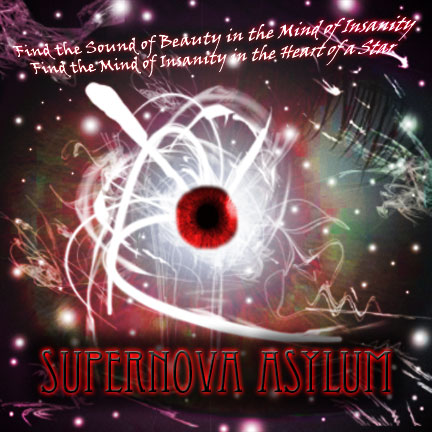.jpg)
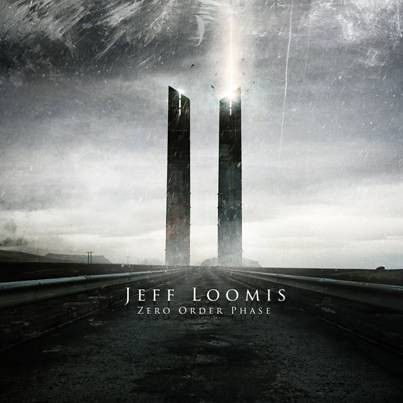






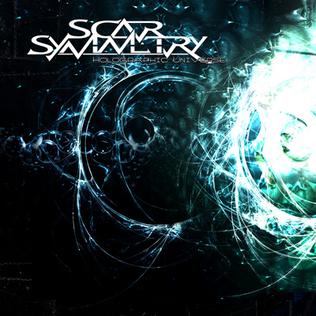
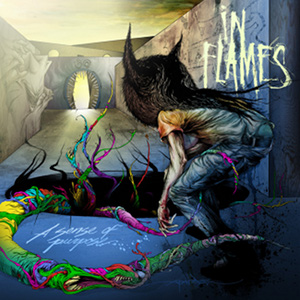
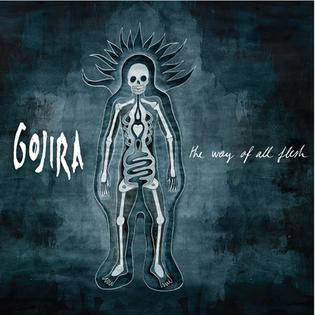

EYE.jpg)